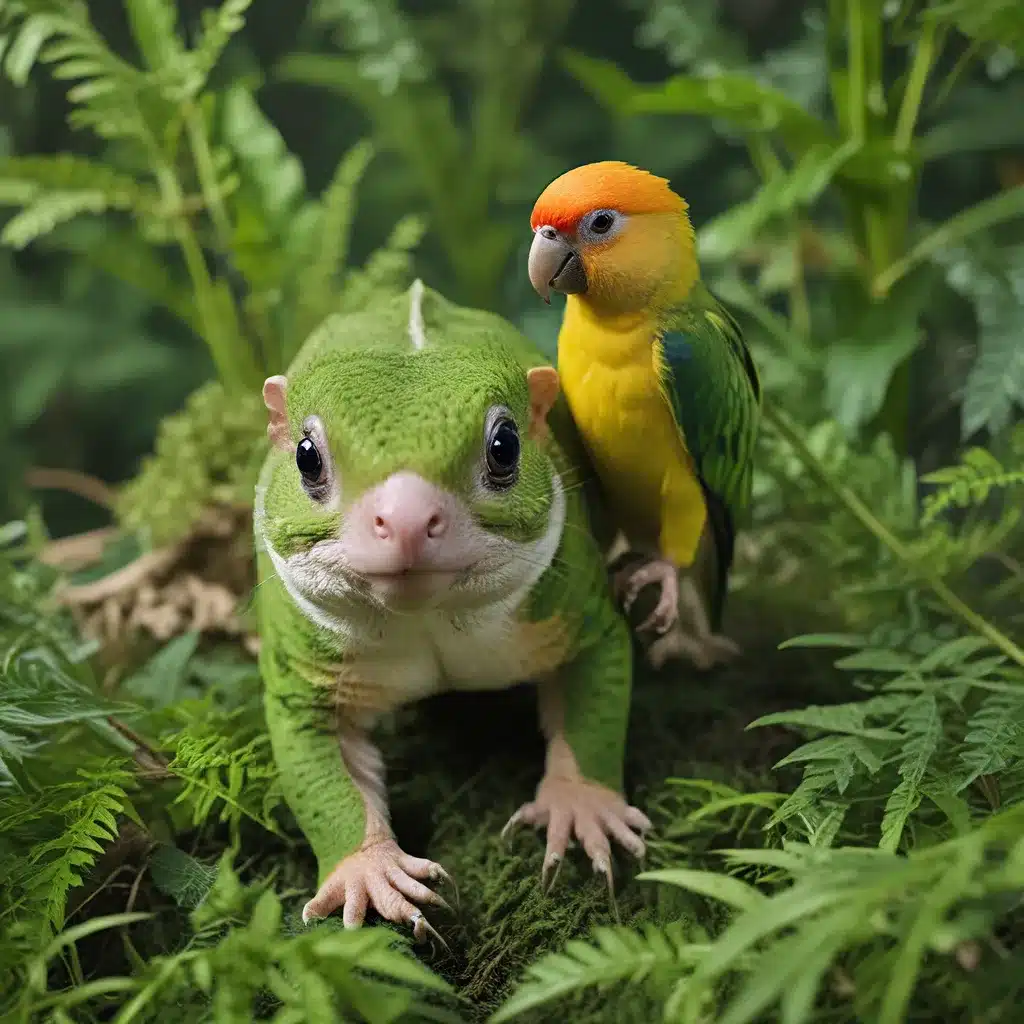
Imagine your furry (or scaly!) friend actively contributing to a more sustainable future. Sound too good to be true? Well, let me tell you about my unexpected journey with a pair of the most eco-friendly pets I’ve ever encountered – my beloved bunnies.
You see, I’ve always been an ardent supporter of sustainability. But ten years ago, when I was researching potential pets to share my life with, I had one non-negotiable requirement: they had to align with my environmental values. After all, what’s the point of having a pet if they end up increasing my carbon footprint?
That’s when I stumbled upon a video of a bunny nibbling on hay, its nose twitching oh-so-cutely. This piqued my interest, and I decided to dive deeper into the world of rabbit ownership. Little did I know that these fluffy creatures would forever transform my perspective on sustainable living.
The Surprising Sustainability of Rabbits
As I learned more about rabbits, I was pleasantly surprised by the myriad of eco-friendly benefits they offered. For starters, their plant-based diet is a game-changer. Unlike pets that consume meat-based commercial foods, my bunnies thrive on a diet of hay, grass, and vegetables. This means their food has a much lower environmental impact, with reduced land and water usage, as well as greenhouse gas emissions.
But the real game-changer? Their poop. Yes, you heard me right – bunny droppings are a gardener’s dream come true! These little brown nuggets are a treasure trove of nutrients that can supercharge your soil’s health and boost the vitality of your plants. I regularly collect their droppings and add them to my compost bin, transforming the mixture into a dark, rich compost teeming with essential nutrients like nitrogen, phosphorus, and potassium.
As Amy French of The Good Life with Amy French blog eloquently describes, “Rabbit manure is commonly called ‘cold manure,’ meaning it can be directly applied to the soil without initial composting. However, to ensure a safer and more efficient nutrient cycle, I compost the droppings before using them in my garden.”
But the sustainability benefits of rabbits don’t stop there. Their very presence can act as a natural form of pest control, deterring common garden pests like rats and mice. While not foolproof, this integrated pest management approach reduces the need for synthetic chemical pesticides, promoting a healthier and more balanced ecosystem in my backyard.
And let’s not forget about their grooming habits. Rabbits are inherently clean animals and don’t require frequent, water-intensive baths. Their self-grooming behavior helps conserve water, and they rely less on chemically-formulated grooming products compared to many other pets.
Cultivating Empathy and Environmental Consciousness
Perhaps the most profound and subtle way that rabbits contribute to sustainability is by cultivating empathy and environmental consciousness. Through caring for my bunnies, I’ve gained a deeper understanding of the interconnectedness of all living beings and the importance of living in harmony with nature.
As Shivya Nath, the travel blogger behind The Shooting Star, eloquently states, “Owning pet rabbits also promotes sustainability more subtly and profoundly – by cultivating empathy and respect for life. Through caring for my bunnies, I’ve gained a deeper understanding of the interconnectedness of all living beings and the importance of living in harmony with nature. This in turn has motivated me to pursue a more sustainable lifestyle in all aspects, from reducing waste to conserving energy and beyond.”
This newfound appreciation for the natural world has had a ripple effect, inspiring me to make more eco-conscious choices in all areas of my life – from reducing waste and conserving energy to supporting local and sustainable businesses. In a way, my rabbits have become the ambassadors of sustainability, reminding me daily of the importance of living in harmony with our planet.
Choosing the Right Rabbit Breed for Sustainability
Of course, not all rabbit breeds are created equal when it comes to sustainability. The key is to choose a breed that thrives naturally in your local climate, reducing the need for excessive resources like climate-controlled housing or specialized diets.
As Amy French shares, “I researched and found breeds that adapt well to local climate, ensuring they thrive naturally without excessive resources. That’s why I settled on my beautiful Netherland Dwarfs.”
By selecting a breed that is well-suited to your environment, you can minimize your pet’s ecological footprint while ensuring their overall health and happiness. After all, what’s the point of a sustainable pet if they’re not thriving?
Transforming Your Lifestyle, One Bunny at a Time
The journey of owning eco-friendly rabbits has been a profound and transformative experience for me. What started as a search for the perfect pet has evolved into a deep-rooted love for these charming creatures and a renewed commitment to sustainable living.
And the best part? You don’t have to be an experienced gardener or a hardcore environmentalist to reap the benefits of rabbit ownership. These fluffy companions can be the perfect gateway to a more sustainable lifestyle, introducing you to the joys of composting, natural pest control, and the countless other ways they can contribute to a greener future.
So, if you’re looking to add a furry friend to your life, I urge you to consider the humble rabbit. Who knows, these little bundles of sustainability might just be the catalyst you need to transform your lifestyle and create a more eco-friendly future – one hop at a time.
After all, as the wise saying goes, “From little things, big things grow.” And when it comes to sustainable living, my bunnies have proven that small can indeed be mighty.
Golden Exotic Pets is the perfect destination to explore the world of exotic pets and discover how they can complement your sustainable lifestyle. Dive into our comprehensive guides and expert advice to embark on your own eco-friendly pet journey.

